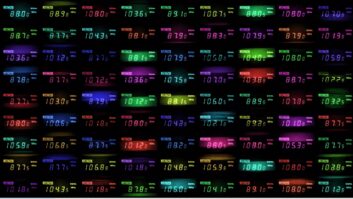Consumer electronics manufacturers have never been wild about being dictated to regarding what they can and cannot place in their devices.
The current discussion about Congress possibly mandating FM chips in cell phones, PDAs and other portable electronics is no exception.
The Consumer Electronics Manufacturers Association opposes the idea, according to several accounts.
Radio World sister publication This Week in Consumer Electronics (TWICE) quotes CEA President/CEO Gary Shapiro as calling the idea floated by NAB and the recording industry as part of their performance rights royalty talks a “backroom scheme” that’s “the height of absurdity.”
“Rather than adapt to the digital marketplace, NAB and RIAA act like buggy-whip industries that refuse to innovate and seek to impose penalties on those that do,” Shapiro is quoted as saying.
After lawmakers forced NAB and the labels to begin talking a year ago, both sides are now a little more comfortable in discussing what they’ve been trying to work out. NAB in particular apparently feels it can have a hand in crafting a better deal for broadcasters in whatever legislation is potentially passed in this Congress than if it continues to fight the labels on the issue and spends both its money and legislative chips on a perennial battle.
It continues to talk to radio board members and state associations about the issue.
As RW has reported, no performance rights deal is in place, but NAB earlier this month released a list of points under discussion. One of them: In exchange for radio paying limited royalties to artists and labels for airing copyrighted music, the recording industry would support radio’s push for Congress to require device makers to include FM chips in their products.
Apple Insider reports that Apple itself has not commented on the idea, though adding FM chips to devices would expand the potential audience of broadcasters. Only one of Apple’s iPod models (the latest Nano) supports FM radio playback, and none of its iPhone, iPod touch or iPad devices does. Apple sells around 70% of MP3 players, and has a prime position in mobile phones and tablet devices, Apple Insider notes. MusicFirst, a lobbying group of which the Recording Industry Association of America is a member, told Ars Technica that it, too, likes the concept of FM chips in cell phones and PDAs because it gives consumers access to more music choices.
Performance rights legislation now before lawmakers does not include the FM chip requirement.
NAB says an FM chip mandate would enhance public safety in emergencies. Dennis Wharton, the association’s EVP for communications, told TWICE, “From a public safety perspective, it is critically important to have broadcast radio’s unparalleled lifeline service available instantaneously in times of emergency. For that reason, NAB would oppose any legislation related to royalties that did not include that feature.”
Radio broadcasters have lobbied the FCC about including FM chips for public safety reasons. According to an ex parte notice about the meeting, they argued that radio alerts to cellphones would be more reliable than a text-messaging warning system being developed for the wireless industry.
But in a letter to House and Senate Commerce Committee leaders in June, CTIA-The Wireless Association said requiring mobile devices to constantly monitor the airwaves for emergency alerts would diminish battery life.
Some cellphones include FM radio, as do the Insignia HD and ZuneHD MP3 players, both with embedded FM HD Radio.







